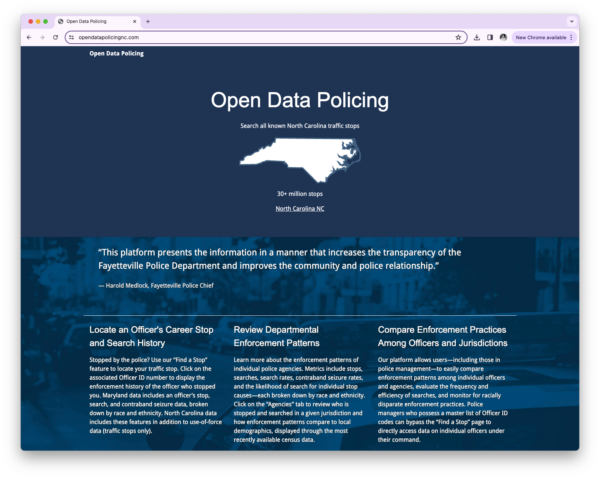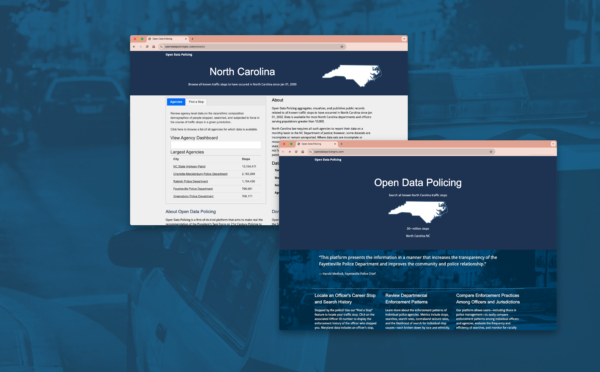Open Data Policing Platform
Open Data Policing is a first-of-its-kind platform that aims to make real the recommendation of the President’s Task Force on 21st Century Policing to make stop, search, and use-of-force “data...publicly available to ensure transparency.” The site currently aggregates, visualizes, and publishes public records related to all known traffic stops to have occurred in North Carolina since 2002, in Illinois since 2005, and in Maryland since 2013.

Data is collected in all states pursuant to mandatory data collection statutes and reported monthly to the North Carolina State Bureau of Investigation, Illinois State Police, and Maryland State Police. The platform does not alter or manipulate raw data. Where data sets are incomplete or missing, it is because they have not been reported to the state agency from which the site derives its records. Although the site permits users to identify the career enforcement patterns of individual officers associated with known traffic stops, Open Data Policing does not have access to, nor does it publish, the names of drivers, passengers, or officers involved in traffic stops.
Visit the website at https://www.opendatapolicingnc.com.
Uses of Open Data Policing
Stopped by the police? Use our “Find a Stop” feature to locate your traffic stop. Click on the associated Officer ID number to display the enforcement history of the officer who stopped you. Maryland data includes an officer’s stop, search, and contraband seizure data, broken down by race and ethnicity. North Carolina data includes these features in addition to use- of-force data (traffic stops only).
Learn more about the enforcement patterns of individual police agencies. Metrics include stops, searches, search rates, contraband seizure rates, and the likelihood of search for individual stop causes—each broken down by race and ethnicity. Click on the “Agencies” tab to review the demographics of those stopped and searched in a given jurisdiction and how enforcement patterns compare to local demographics, displayed through the most recently available census data.
Our platform allows users—including those in police management—to easily compare enforcement patterns among individual officers and agencies, evaluate the frequency and efficiency of searches, and monitor for racially disparate enforcement practices. Police managers who possess a master list of Officer ID codes can bypass the “Find a Stop” page to directly access data on individual officers under their command.

